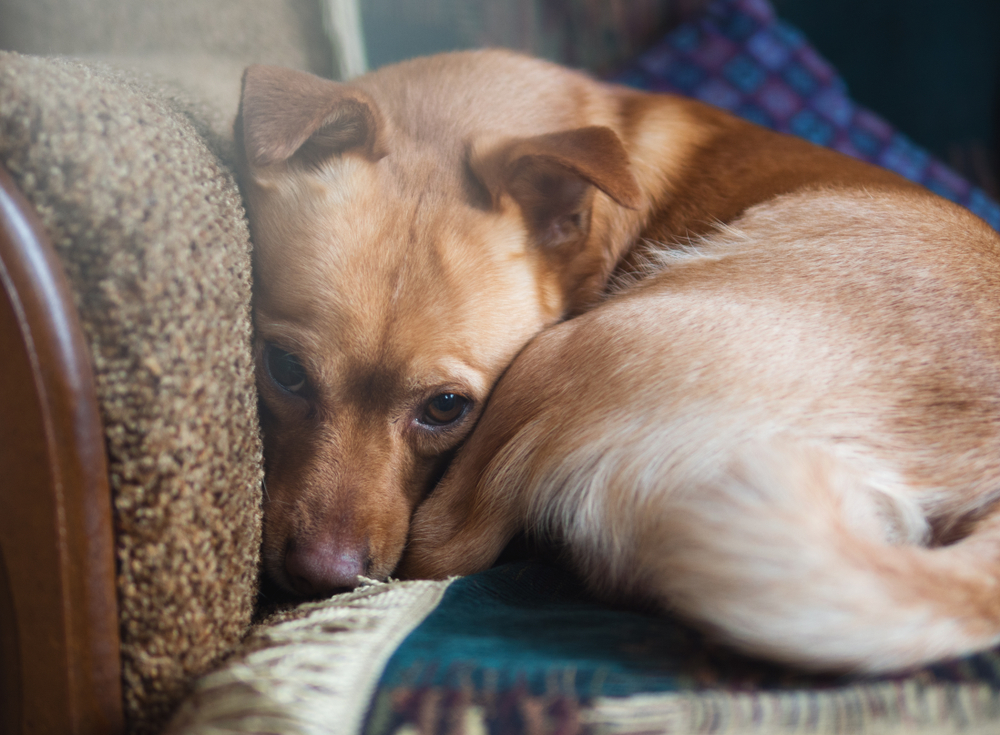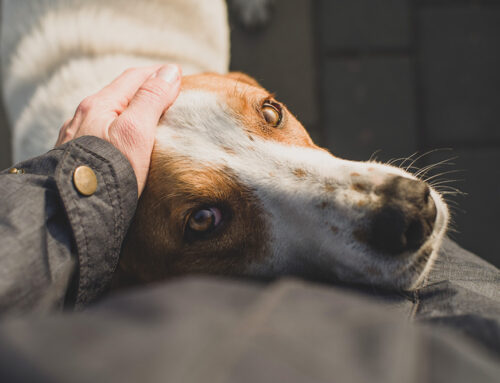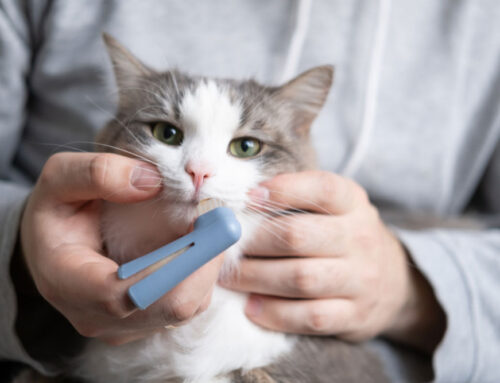Your pet’s ears are about four times as sensitive as yours. Pets also can independently control their ears to direct them toward sounds for better reception. So, while you are admiring the impressive fireworks display, your pet may be overwhelmed by the excessively loud, sudden noises, and upset because they cannot identify exactly where the noise originates. Your pet may have an aversion to loud noises, or possibly a noise phobia. This anxiety and fear can affect your pet psychologically and physiologically. The physiological effects include increased heart rate, respiration, and cortisol levels, and delayed wound healing. Some pets may suffer from stress-induced colitis, and cats can acquire stress-induced feline idiopathic cystitis. Since preventing anxiety is key to improving your pet’s well-being, the team at Palm City Animal Medical Center wants to help you prepare your pet for the upcoming July Fourth celebration.
What if your pet has mild anxiety when exposed to fireworks noises?
All pets should wear a collar and valid identification tags in case they bolt through an open door when the festivities spook them. Microchipping your pet is also recommended, and can be accomplished easily at your pet’s next wellness exam. Most pets who exhibit mild anxiety in response to loud noises will benefit from staying in an interior room in your home, preferably without windows. Ensure they have food, fresh water, familiar bedding, and, for cats, a clean litter box. Providing recently worn clothing may comfort your pet if you are leaving the house. You can also distract them by offering a challenging food-puzzle toy right before you leave the house. Music can mask any outdoor noises if left playing at a moderate level, or your pet may prefer the television left on so they can watch their favorite show.
What if your pet has significant anxiety when exposed to fireworks noise?
If your pet exhibits more than mild signs, they may benefit from behavior modification to desensitize them to the loud noise. For the best results, begin this training several weeks to months before July Fourth. Begin by downloading fireworks noises and playing them at a low level. If your pet stays calm, offer them a favorite treat, or play their favorite game. Allow the sound to play for several minutes a few times a day. At each session, incrementally increase the volume. If your pet shows anxiety or fear, decrease the volume until your pet is calm again, and then offer a treat. Start the next practice at the safe volume and increase your volume more gradually.
While your pet is fearful, you can comfort them, but not excessively. They may read the comforting as acknowledgement that their fear is valid, or pick up on your own anxiety. Your pet is not misbehaving when they express anxiety, and should not be punished. In fact, punishment can escalate the fear response. Forcing your pet to face their fear is also unhelpful. If they feel trapped in the situation, they may retaliate and injure someone.
Once your pet is calm during louder training sessions, your work is still not finished. Your pet’s response to an actual fireworks display may differ from their response to the prerecorded noises. Take your pet to a fireworks show, parking where you can hear the display, but can also leave easily if your pet becomes upset. Have music playing before the show begins. Once the fireworks start, say yes when the fireworks boom and offer your pet a favorite treat. If your pet remains calm, decrease the music volume, and continue the process. If your pet continues to be undisturbed, lower the car windows to allow in more noise. Do not stay for the entire display, and leave while your pet is still relaxed and happy.
You should remain home during fireworks displays until your pet is acclimated and stays calm for the show’s duration. Your presence will comfort your pet, and treats or playtime during the fireworks can help distract them. If you leave your pet alone to suffer alone, their response may escalate and become more extreme.
What if your pet has excessive anxiety when exposed to fireworks noise?

Pets exhibiting extreme anxiety may tremble, hide, vocalize excessively, or become destructive. If your attempts at behavior modification are unsuccessful, ask the veterinary professionals at Palm City Animal Medical Center if your pet is a candidate for medication. Several mild tranquilizers and anti-anxiety medications and supplements are available that may decrease your pet’s stress. Always do a trial run before the big night to ensure the medication will work to keep your pet calm and stress-free.
You will enjoy the July Fourth celebrations better if you know your pet is relaxed and calm during the excitement. If you would like to discuss your pet’s anxiety problems, contact the team at Palm City Animal Medical Center and schedule an appointment.








Leave A Comment